Thanks for being here! I’m on a mission to serve others through writing & mentorship, and I’m doing this work as a self-employed, neurodivergent human. Your support has a bigger impact on my life than you likely know. Please know it! When you can, thank you for reading closely, sharing widely, and upgrading to a paid subscription.
1.
I’ve always struggled with questions about “favorites.” Books, movies, food, colors. I once told a co-worker that my favorite beverage, I supposed, was hot water. I’m not sure what people mean when they talk about favorite seasons. The idea that I should have a favorite song makes me a little nauseous.
2.
But I do have a favorite poem, actually, and I can quote it from memory despite recalling nothing else of the book it begins. In fact, it’s never even occurred to me to see what else the poet, a woman named Julie Choffel, might be up to in life. Why is that?
Here’s the poem, from a book called The Hello Delay:
Serenade, or After Others Here, from a fake rose I've made you a real one my poetry has no camera The holes between the stars and the holes the stars will leave in the sky
3.
This is the part of the newsletter where I’d usually say a few smart and/or interesting things about the poem, which would intersect nicely with my new insights about the poet, who I’d obviously taken the time to finally look into. Except I have no new insights about the poet because I did not take the time to look into her, beyond finding that one measly hyperlink to the book I’m referencing, and since encountering the poem in 2012 (the year I drove from Oregon to Maine—25 and off to grad school, I’d been sharing my life with a fluffy orange cat for the past seven years and was pretending to love the human driving those 3,326 miles with me, desperate for stability without knowing what that was and still refusing to become myself), I’ve never once written or said or even thought a single smart and/or interesting thing about it, beyond thinking that the poem is, to my poet’s mind and ear, perfect.
(4.
That last sentence, by the way, is how grief makes me feel. Yes, I understand it’s unfolding how it’s supposed to, but gawd how can a thing feel so rushed and yet go on for so long?)
5.
You might think nothing has changed about me in 11 years: I still think the poem is perfect. I still have no explanations to offer you, no justification for my preference.
But the big life markers I’ve been collecting over time and am equipped to toss your way—abortion, divorce; the death of my sweet fluffy orange cat, Boots, 9 days ago—should quickly undo your assumption.
6.
Up there, a few sections ago, I couldn’t figure out how to spell “nauseous.” And because these algorithms are crudely built to anticipate what the right tracks are and then correct us back onto them, I found myself typing, over and over again, it makes me a little nautilus.
7.
I don’t mean to compare relationships that aren’t alike by speaking about them at the same time, or to hide one that matters a lot inside one that matters hardly at all. The truth is that that word, “divorce,” doesn’t even touch me: I consistently find myself in situations where the topic arises—after all, nearly 50% of marriages in this country end in divorce, they say; they say a divorce takes place here once every 30 or so seconds—and I listen like an outsider, this particular experience having never congealed as part of who I am.
8.
Why talk about a thing I never talk about, and don’t care about, and don’t identify as? Maybe it feels easier to talk about than other things, though this explanation feels a little parched to me. Here, from a real topic, I’ve made you a fake one, except I’m hardly saying anything important about the fake one, either. I don’t know what to say to you about the things in this world I have liked and loved more than anything else, the things I have found perfect and without need for explanation, so I will throw a grenade into the room, this room I call For the Birds because I thought the title was funny (how it pretends that what I’m saying isn’t important) and distract you with too-personal details, and mistyped words, and random scientific facts.
9.
“The behavior of the nautilus is actually somewhat complex, and varies from species to species. Scientists know that they perform vertical migrations, which means that they sink closer to the bottom at times, and rise to the surface at others. While they ascend to the surface to feed at night, there is some complexity to this behavior that is not well understood.”
10.
Another example of vertical migration: “It isn’t bad. It’s hard.” My partner (love, stability) has been working on building new neural pathways these past 9 days. I crane my neck backwards and stare up at his efforts, which twinkle above me, as if floating toward the roof of this room I call home.
Not bad. Hard.
In some moments, the distinction feels like a guiding star. In others, a hole.
11.
My partner and I have this long-running joke-not-joke where anytime I see an animal—in person, on TV, in a book—I tell him, with complete earnestness, that I think it looks like Boots. Because it always does. Meerkats, seals, alpacas, ferrets. The fat squirrel in the park coming down from winter. Almost every dog being walked on our street. That postcard of the baby coyote pinned to a small bulletin board at the end of the bed: They all look like him to me.
My partner, usually prepared to laugh and gently disagree, is occasional struck silent by the truth of what I say.
12.
OK: The thing about the poem is that at the end of the day, everything is either one of two things: stars, or the spaces between stars. I, the reader, must also be either one or the other.
In this moment, I would prefer to be a star. But tomorrow?
And the thing about the poem at the end of the poem is that everything becomes a hole: both the stars, and the not-stars between each one.
But where do the stars go? And why are they leaving holes in the first place?
This is why explication so often fails us. It tricks us into asking questions that depend on their answers (~~where did he go?~~) rather than questions that exist to just be themselves: Open, curious, twinkling, enough. It takes a hard thing and turns it into a bad thing. If I believe my own interpretation, I might start to wonder if the poem isn’t actually a serenade, but a lament. I might start to think that all odes are really just elegies. I might swallow a simple, comprehensible story about death that answers all my questions and prevents me from hearing the uncertain music inside grief. I might never notice that all elegies are, in fact, really just odes.
13.
PRO FORMA Flowerpots lining the whitewashed stairs. Two large yellow gourds on the open landing. That's all I'm going to tell you, he said. The bicycle resting up against the sunlit curb. Its rider was inside eating. The steam from his bowl of wild greens clouded over the small shaving-mirror on the wall. The tablecloth was covered with printed roses. The real rose was indistinguishable from the rest. This was done on purpose by the rose. ~Yiannis Ritsos
14.
OK: Thinking about Boots (he was physically here, flowerpot on a stair, and now he isn’t) makes me a little nautilus. It makes my arms feel like tentacles and my tentacles feel like they’ve been sawed short. It fills me up with a weird, buoyant gas. It turns all my straight parts into spirals and my spirals into edges. It makes me feel like my arms (which a moment ago felt like tentacles but now—does this mean I’m feeling better?—feel like arms again) are sails. And so are my legs. And so is my head. My heart. My lungs. My stomach. Rising and sinking, rising and sinking.
15.
My poetry has no camera. It’s a shutter without film.
It is all sails and no mast.
16.
The poem, either one, invites me to trust in these words (my words?) and whatever space they create or leave behind, in whatever sky they’re a part of. That they’re bringing me or you—at least one of us—a little closer to the right question. One that sings. A question capable of carrying everything that also contains it. The one that stops pretending that the answer must distinguish between real and not real, between stars and holes, between here and gone.
17.
There’s a star created (gone), and a space left behind (here), though it might actually be the other way around.
Like a piece of paper with a star-shaped hole cut out.
Both are real. Both shimmer.
“What I want to know,” she said, “is this: Are the stars gold paper or is the gold paper stars?”
Now that’s a question I can get behind (from Mary Poppins, by P.L. Travers).
Paper star, celestial star. Real rose, fake rose, photograph of a rose. My favorite is the one that looks like him.
Suggested homework
Hug your creatures.
Write about your pets.
Share your creative results with me!
On the site: Hit the “comment” button to share publicly. Tell us about Fido and Whiskers and Mary Pawpins and H.P. Lovecat.
By email: Hit “reply” to keep the conversation one-on-one. It’s been a gift to hear from friends, readers, and collaborators about their own experiences with pet grief, and I welcome your words, too. Thank you for the time, energy, and love it takes to reach out and say, yes, I understand, I see you.


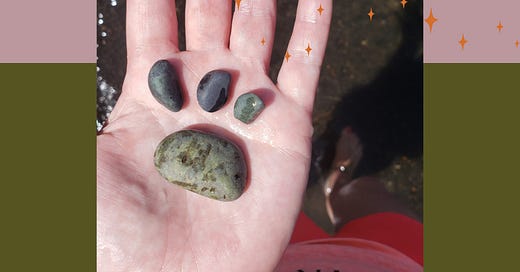


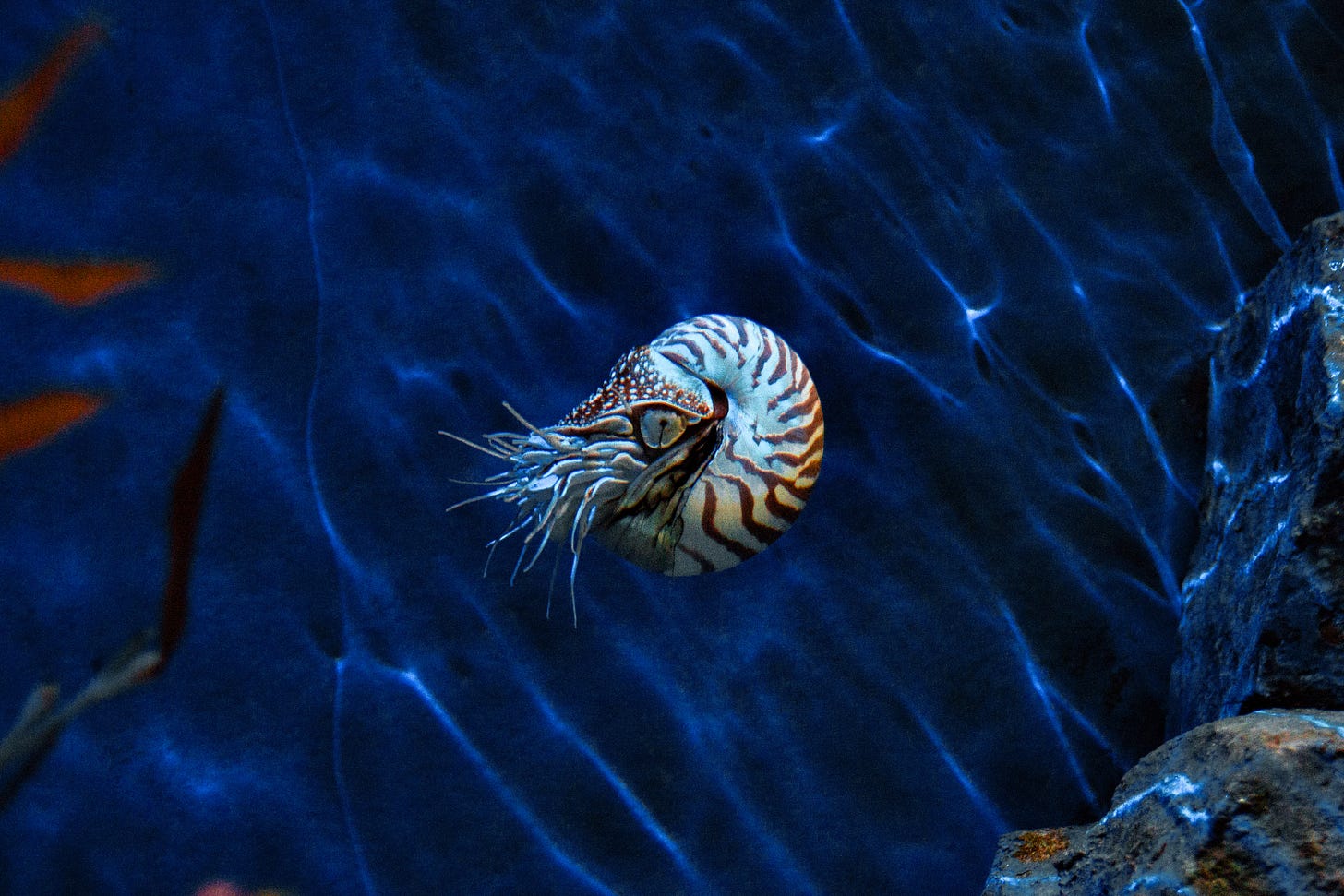
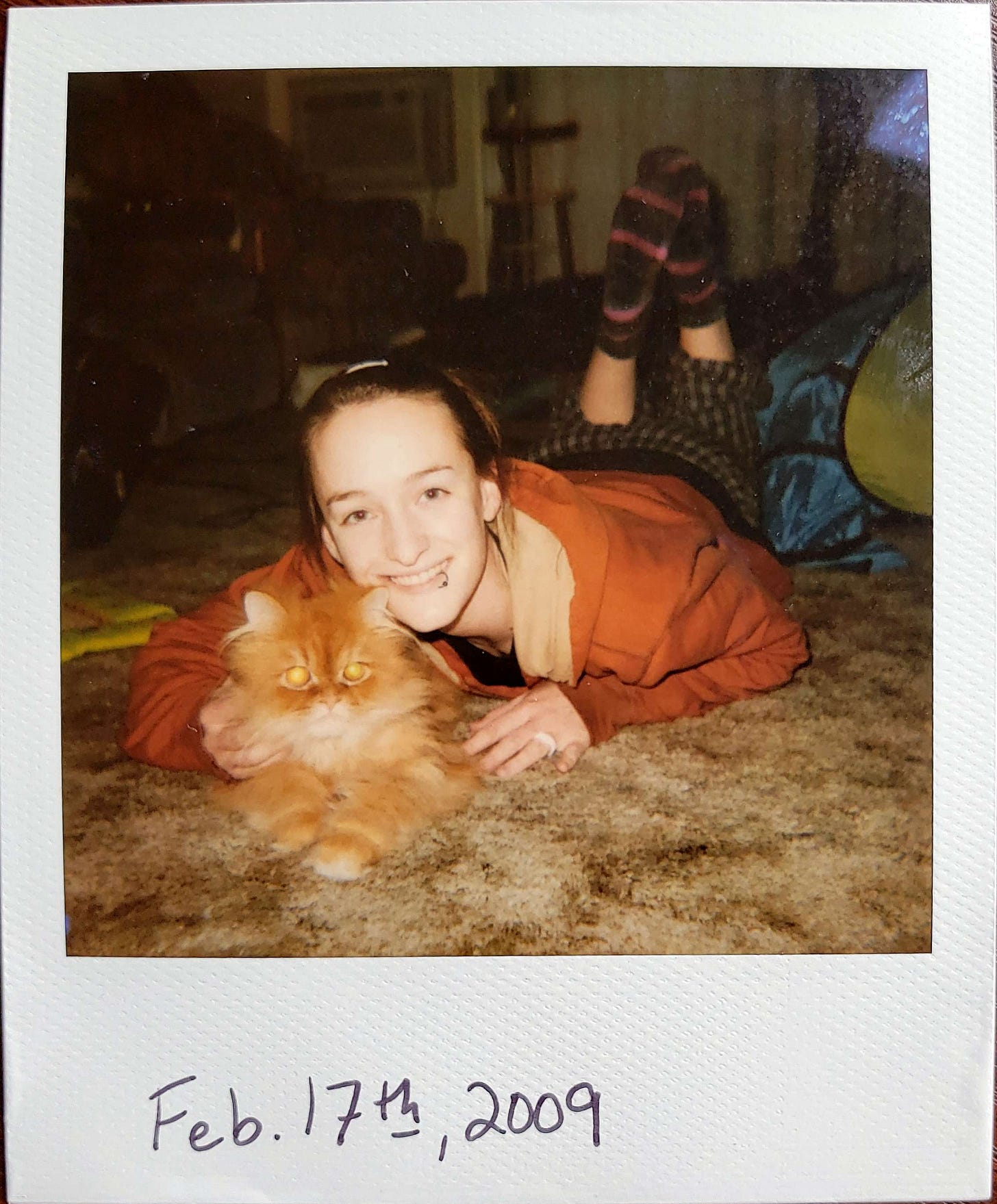
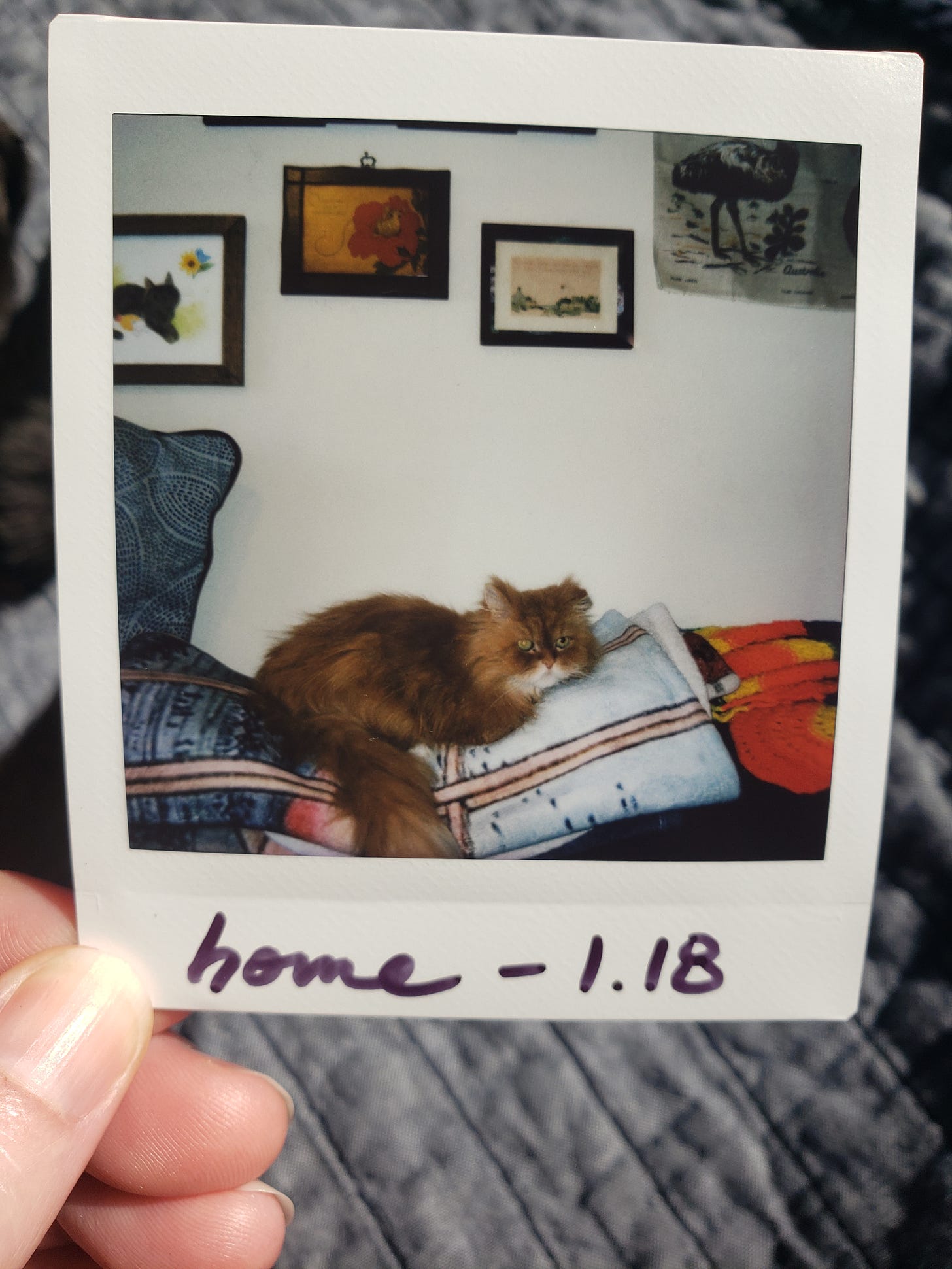
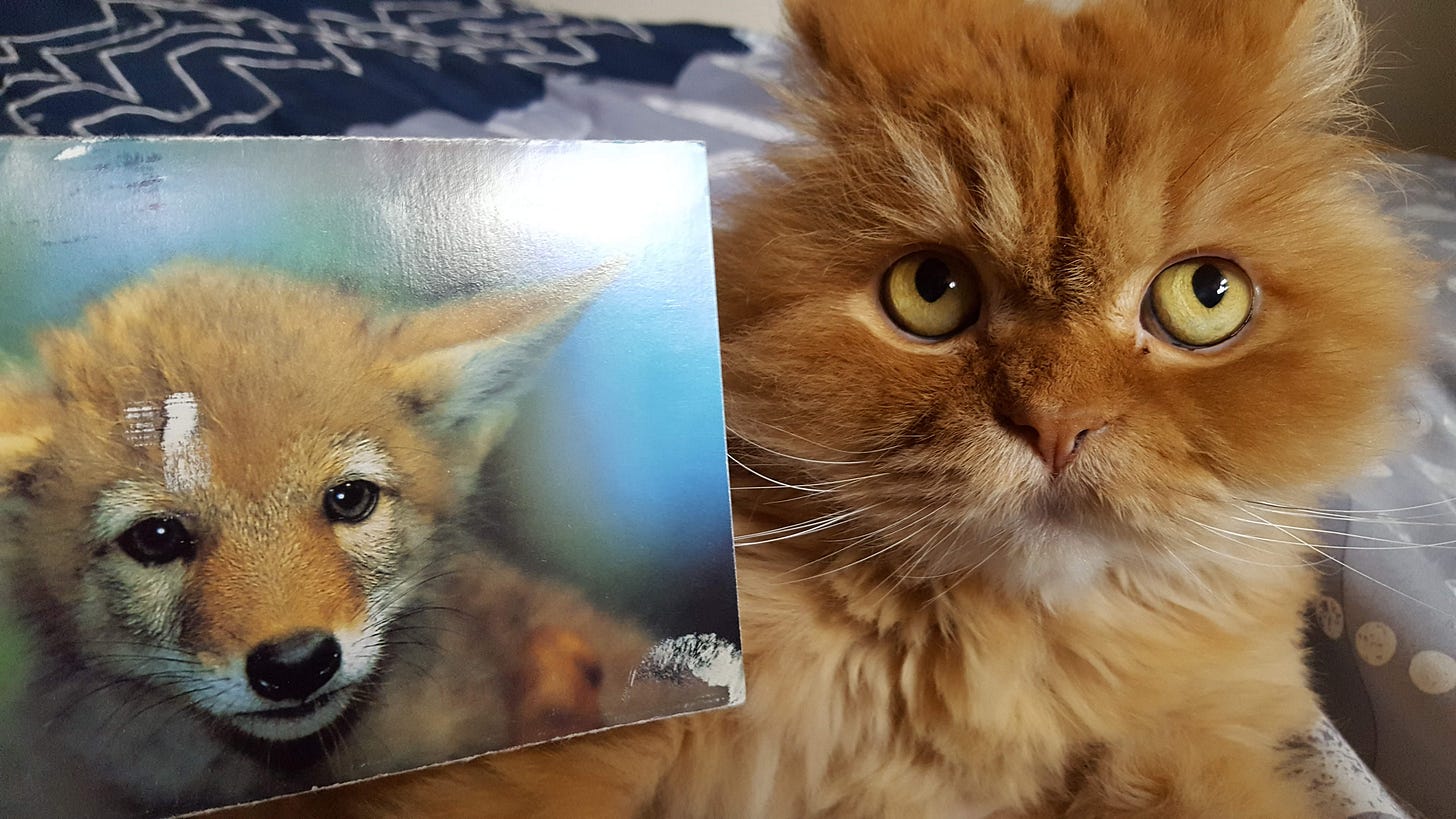
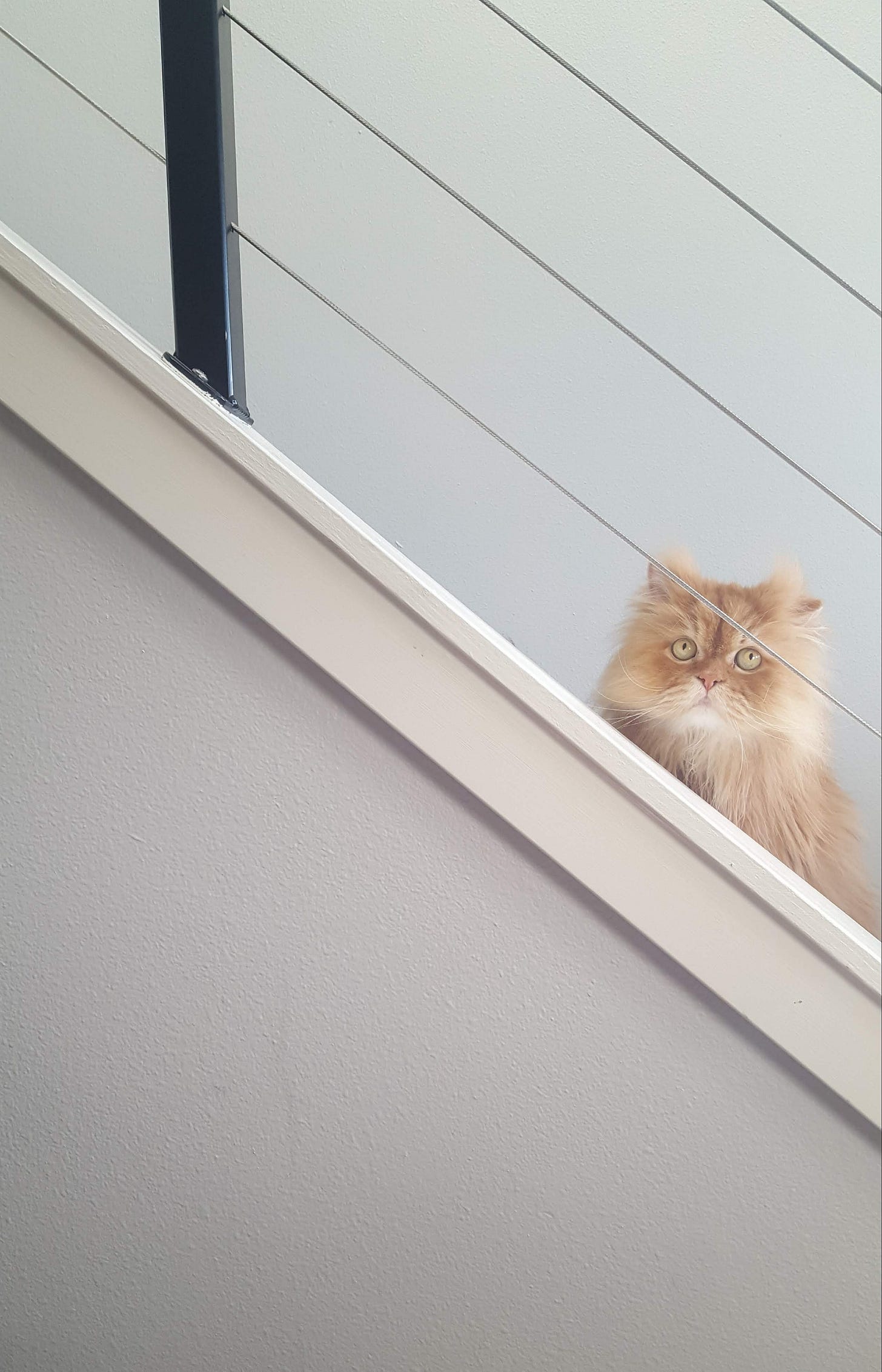
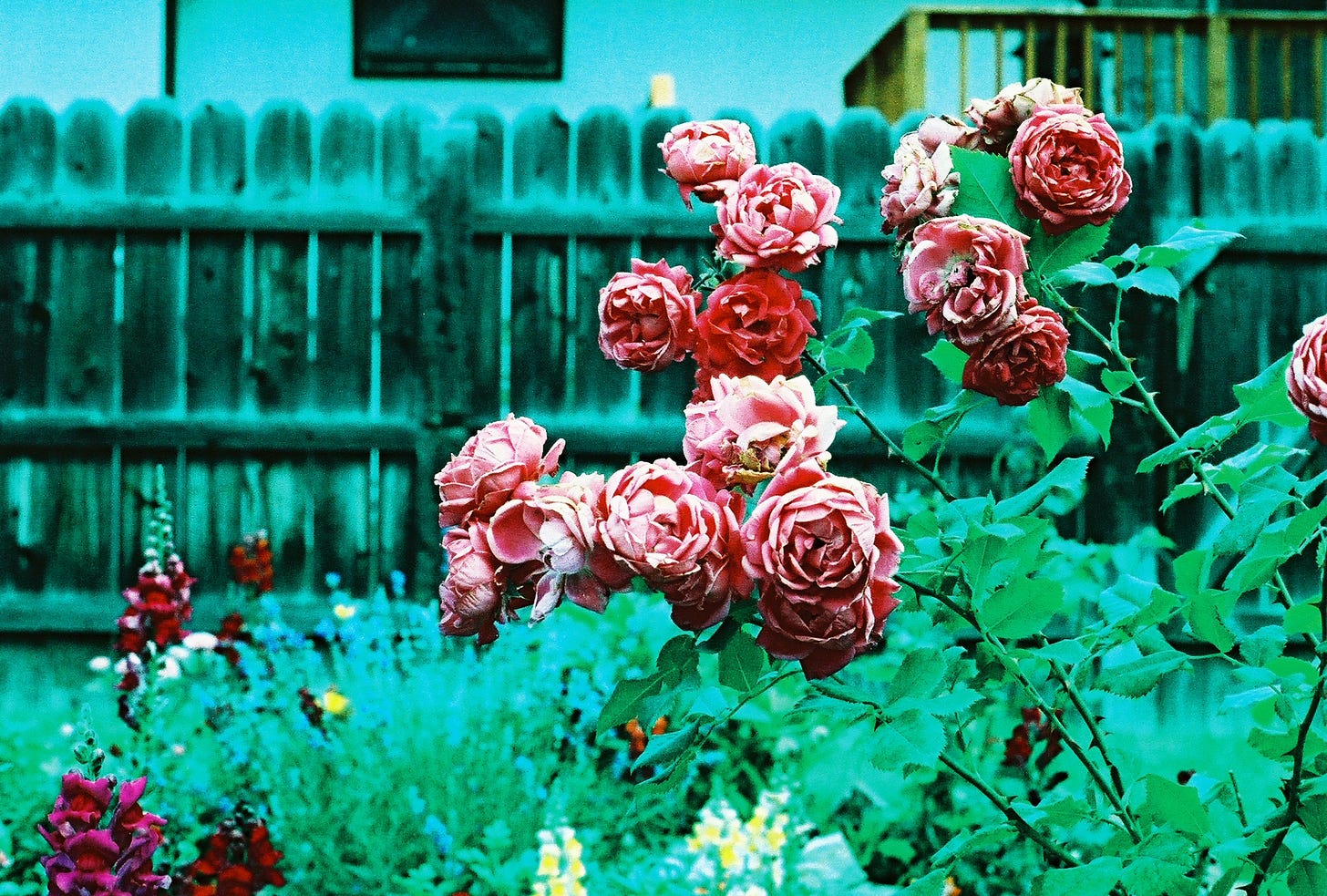
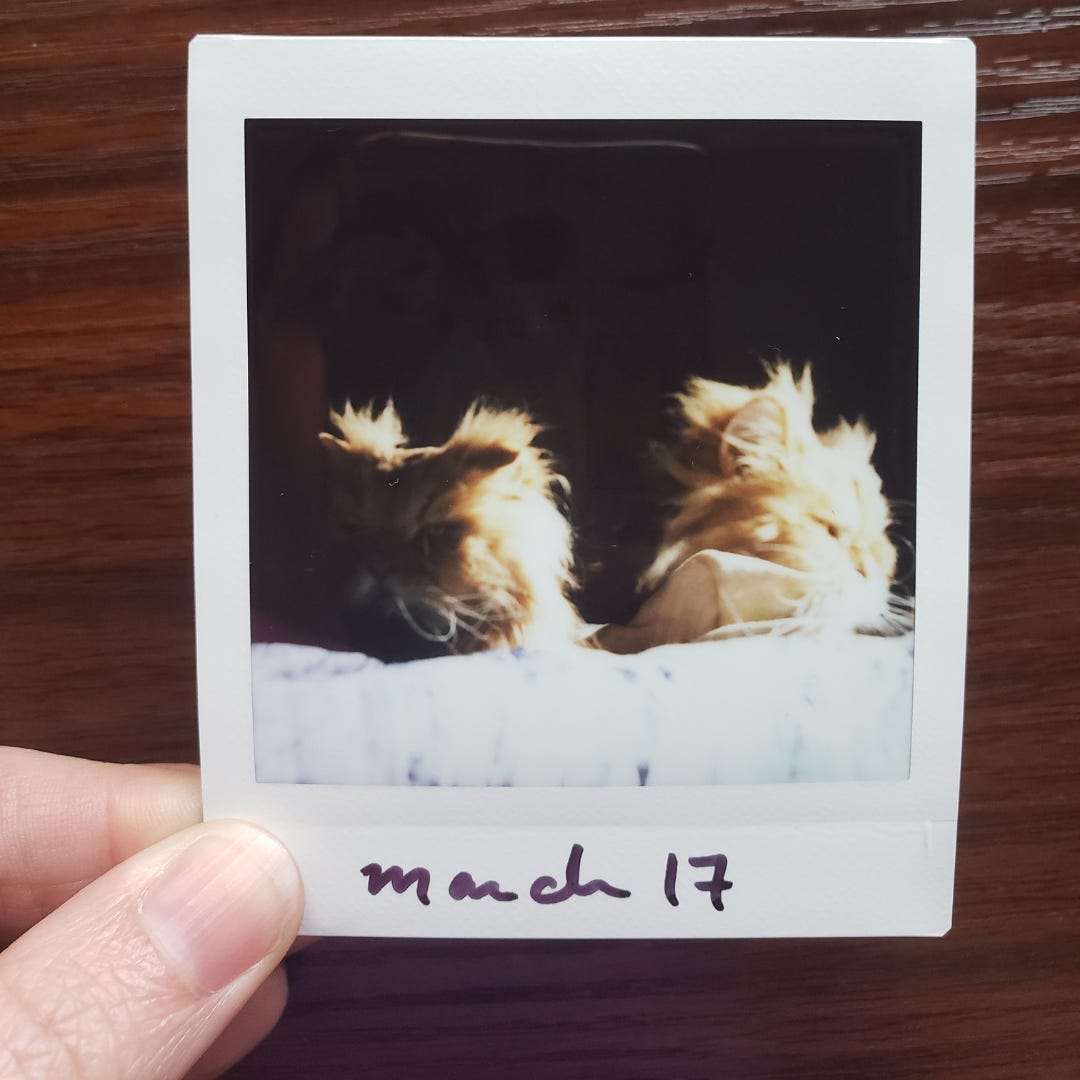
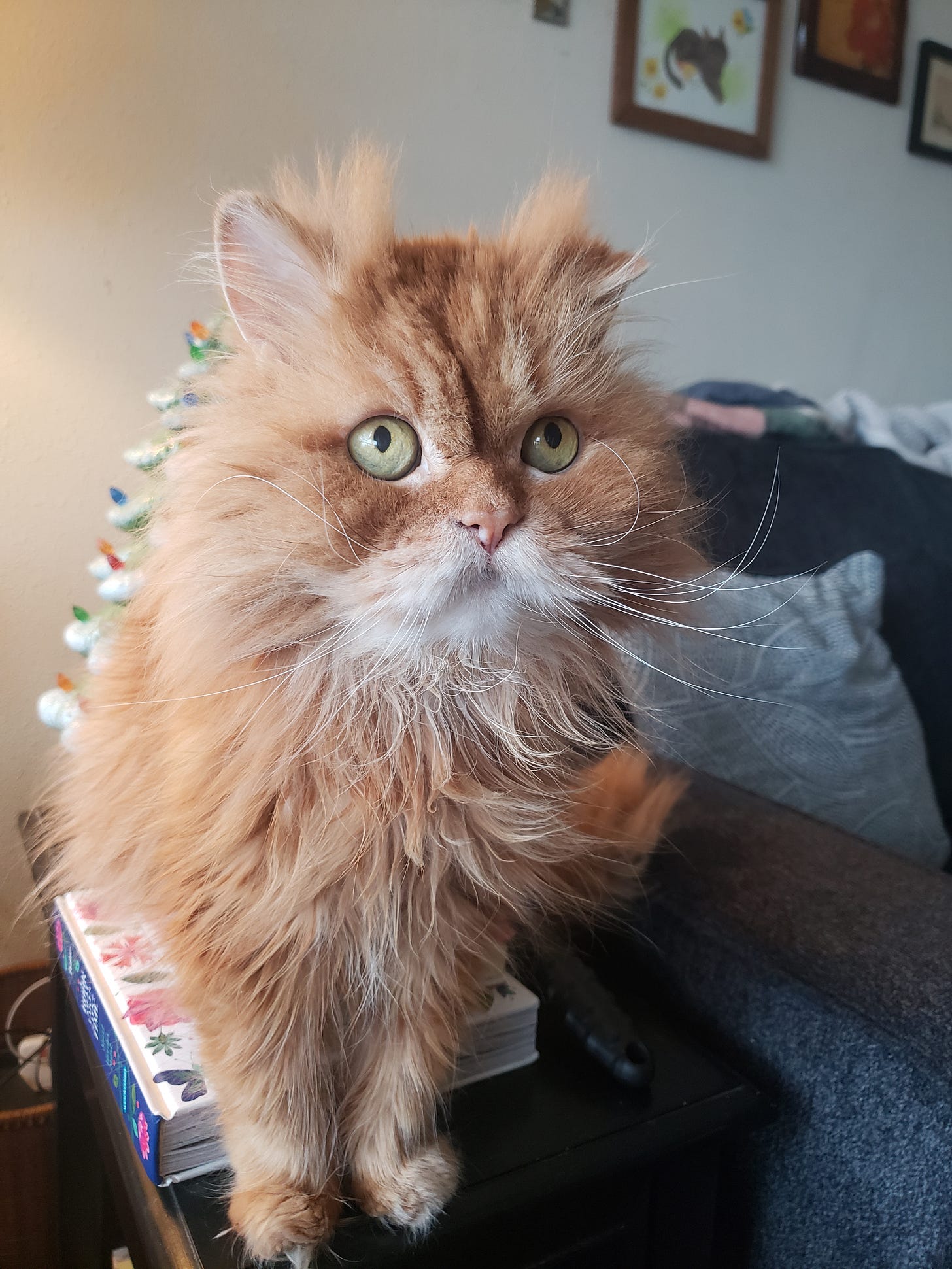
Thank you for sharing your grief-journey, both the darkness and the shimmering--for openly sitting with those "questions that exist to just be themselves: Open, curious, twinkling, enough." This is a beautiful, honest meditation on the mystery. I thought of Mark Strand's "Keeping Things Whole," so I'll put a link here. In grief the games of meaning fall away, and everything is a magical, buzzing whole. But the loss is real and so hard. I'm sorry for the Boots-shaped hole in your heart.
https://www.poetryfoundation.org/poems/47541/keeping-things-whole
RIP dear Boots. I'm so glad to have met you. Your life, your impact on Sarah will be etched forever in her (and Mo's!) memory hearts. Having pets takes us to the highest heights of joy and comfort, and companionship, and we are devastated when they leave us behind. I've learned that this is the bargain we so reluctantly accept. I've also learned grief, and how to embrace grief through our pets' passing. We have four of our dearest 4-footed friends buried at the edge of our garden, and like the most beautiful message in the book, "The 10th. good thing about Barney," our cats and now Boots are forever in the flowers. Love you.